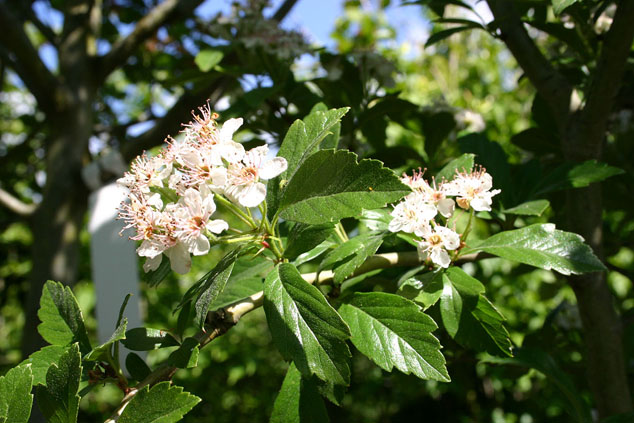 Natural treatments include herbs for angina that work well in clinical and animal studies. Finding the best formulas is difficult due to marketing hype that is not supported by research results. Here is how to start.
Natural treatments include herbs for angina that work well in clinical and animal studies. Finding the best formulas is difficult due to marketing hype that is not supported by research results. Here is how to start.
What Is Angina?
Angina (angina pectoris) is severe chest pain due to lack of blood (i.e., oxygen) in the heart muscle. The main cause is a coronary artery disease called atherosclerosis, or a clogging of the arteries. Angina typically feels like the chest is being strangled. Severity of symptoms may or may not be associated with fatal heart attacks.
Four types of mainstream prescription drugs are available to treat angina: beta-blockers, nitrates (e.g., nitroglycerin), calcium antagonists, and antiplatelet drugs. Herbal medicine also offers solutions for treating angina. Below is a summary of the top herbs and herb ingredients based on scientific research.
Bromelain
Bromelain is a mixture of protein-digesting enzymes from the stems of the pineapple plant (Ananas comosus). Bromelain is widely used as a component of digestive enzyme supplements and as an anti-inflammatory and fibrinolytic systemic enzyme for treating arterial blockages.
Study: Experimental dosages of 1000-1400 mg daily led to disappearance of symptoms angina in human patients within 4-90 days, depending on severity of blockage. Symptoms returned when bromelain treatment was discontinued. (Source: Acta Med. Empirica)
Hawthorn (Crataegus species)
Effects are due to substances called flavonoids and oligomeric proanthocyanidins (OPCs).
Study: Crataegus extracts given orally to rats (2 percent of the diet) significantly reduced damage to myocardial cells. (Source: Arzneim. Forsch.)
Study: The main flavonoids from Crataegus led to improved coronary flow, heart rate, left ventricular pressure, and speed of contraction and relaxation in perfused isolated guinea pig hearts. (Source: Arzneim. Forsch.)
Study: Crataegus extract (3.3 percent OPCs) diminished accumulation of lactic acid, thereby improving oxygen utilization, in perfused isolated rat hearts. (Source: Arzneim. Forsch.)
Study: 46 patients were given either a tablet with 100 mg of Crataegus leaves or a placebo. Results were that 46 percent of the Crataegus group showed improved EKG readings within 4 weeks, whereby the control group showed 3 percent improved readings. (Source: J. Tradit. Chin. Med.)
Study: Crataegus leaf extract led to decreased oxygen consumption and improved oxygen utilization and heart function when given to dogs. (Source: J. Tradit. Chin. Med.)
Study: 60 patients with mild stable forms of angina were given either a tablet with Crataegus extract (brand: Crategutt novo) or a placebo 3 times daily. EKG readings under exertion improved significantly in the treated group vs. the control group. (Source: Therapiewoche)
Other Angina Treatment Herbs
Additional research has also shown the beneficial effects for treating angina with the following:
Khella (Ammi visnaga): Commercial supplements are widely available for healthcare professionals. Effects are less than those reported for hawthorn. Active ingredients may have toxic effects at clinical doses.
Astragalus membranaceus (currently correct name: Astragalus propinquus): Widely available in supplement form. Better known as an herb for boosting the immune system. One major Chinese study showed significant benefits in treating heart disease in humans. However, treatment was not with any available oral form.
Terminalia arjuna: Important cardiotonic herb in Ayurvedic medicine. One small clinical study (10 patients) showed significant improvement in several indicators of heart health, including lower frequency of angina.
Comments
As far as herbs for treating angina go, hawthorn has been the star of the show in herbal medicine for centuries. Research confirms its traditional uses for treating angina and other heart health issues.
Hawthorn berries are the most common source for supplement products. However, it is not at all clear that this source offers maximum benefit for heart health. Active ingredients also occur in flowering tops and in leaves. Anyone considering the use of hawthorn for heart health should first read any full monograph on this herb before buying or using any herbal preparation.
Bromelain is now commonly incorporated into formulas that contain additional anti-inflammatory proteolytic systemic enzymes. These include nattokinase, serrapeptase, trypsin, papain, and a multi-enzyme mixture called pancreatin. The totality of research on these enzymes for heart health is immense. We now know that bromelain alone is not as powerful as a good enzyme formula that contains some or all of these other enzymes.
All the best in natural health,
Dr. D

Leave a Reply